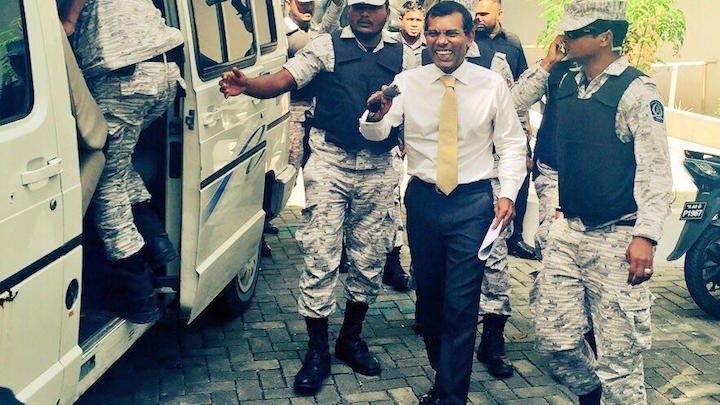Nasheed’s family wins right to weekly visits
“Visitation rights have now been set to as it was before. This is a big development. The MCS did not reveal why they had stopped giving us the chance to visit. We believe it was personal,” Nasheed’s brother told the press today.

18 Oct 2015, 09:00
Jailed former President Mohamed Nasheed’s siblings and extended family won today the right to visit him in prison every week.
Nasheed’s brother Ahmed Nazim Sattar had sued the Maldives Correctional Services (MCS) at the civil court over what he contends was an arbitrary decision in June to limit Nasheed’s weekly family visits to his parents, wife and children.
“Visitation rights have now been set to as it was before. This is a big development. The MCS did not reveal why they had stopped giving us the chance to visit. We believe it was personal,” Nazim told the press today.
The decision was reached today after two dispute resolution meetings. Lawyers from the attorney general’s office represented the MCS.
Become a member
Get full access to our archive and personalise your experience.
Already a member?
Discussion
No comments yet. Be the first to share your thoughts!
No comments yet. Be the first to join the conversation!
Join the Conversation
Sign in to share your thoughts under an alias and take part in the discussion. Independent journalism thrives on open, respectful debate — your voice matters.




